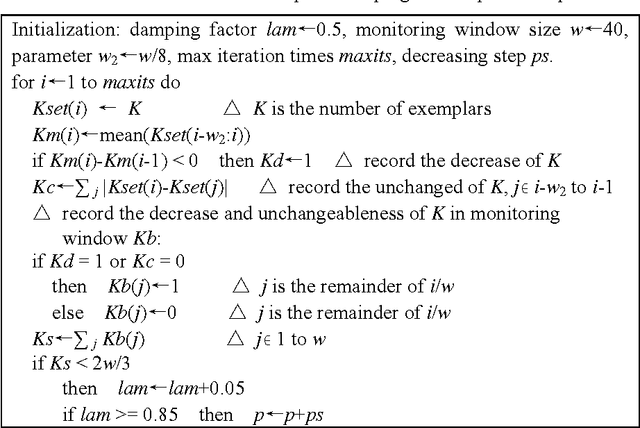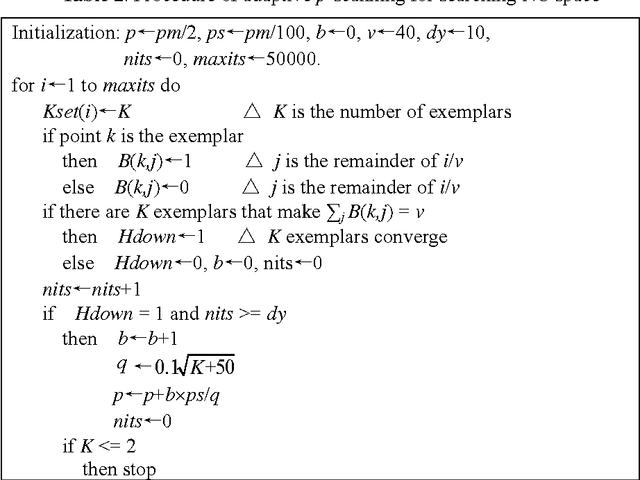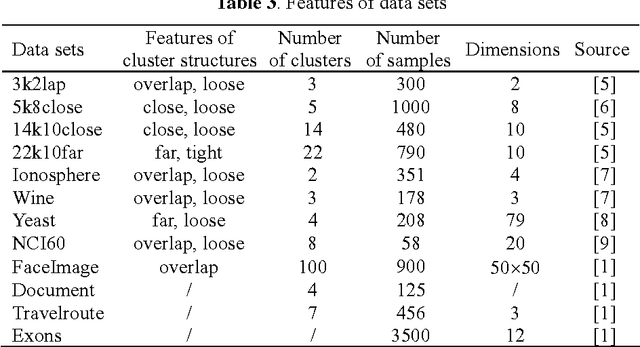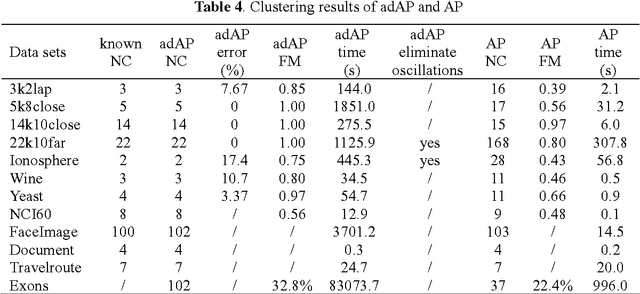Adaptive Affinity Propagation Clustering
Paper and Code
May 08, 2008



Affinity propagation clustering (AP) has two limitations: it is hard to know what value of parameter 'preference' can yield an optimal clustering solution, and oscillations cannot be eliminated automatically if occur. The adaptive AP method is proposed to overcome these limitations, including adaptive scanning of preferences to search space of the number of clusters for finding the optimal clustering solution, adaptive adjustment of damping factors to eliminate oscillations, and adaptive escaping from oscillations when the damping adjustment technique fails. Experimental results on simulated and real data sets show that the adaptive AP is effective and can outperform AP in quality of clustering results.
* K. Wang, J. Zhang, D. Li, X. Zhang and T. Guo. Adaptive Affinity
Propagation Clustering. Acta Automatica Sinica, 33(12):1242-1246, 2007 * an English version of original paper
 Add to Chrome
Add to Chrome Add to Firefox
Add to Firefox Add to Edge
Add to Edge